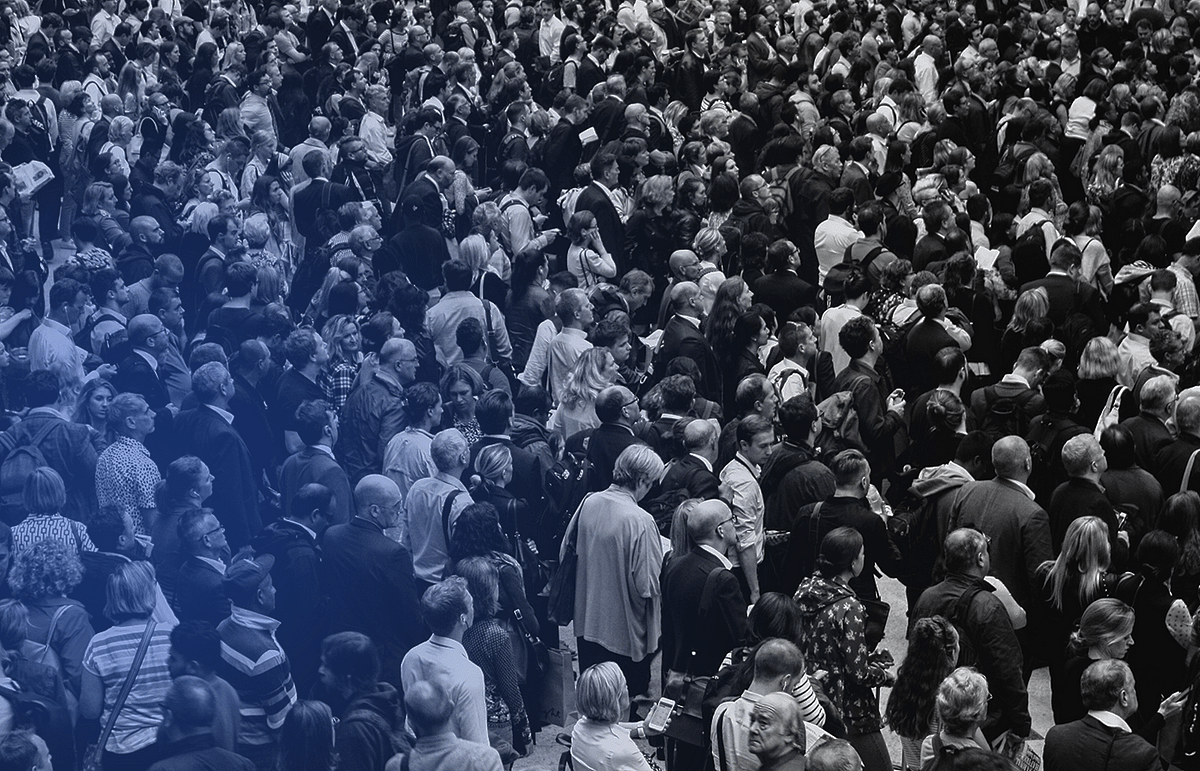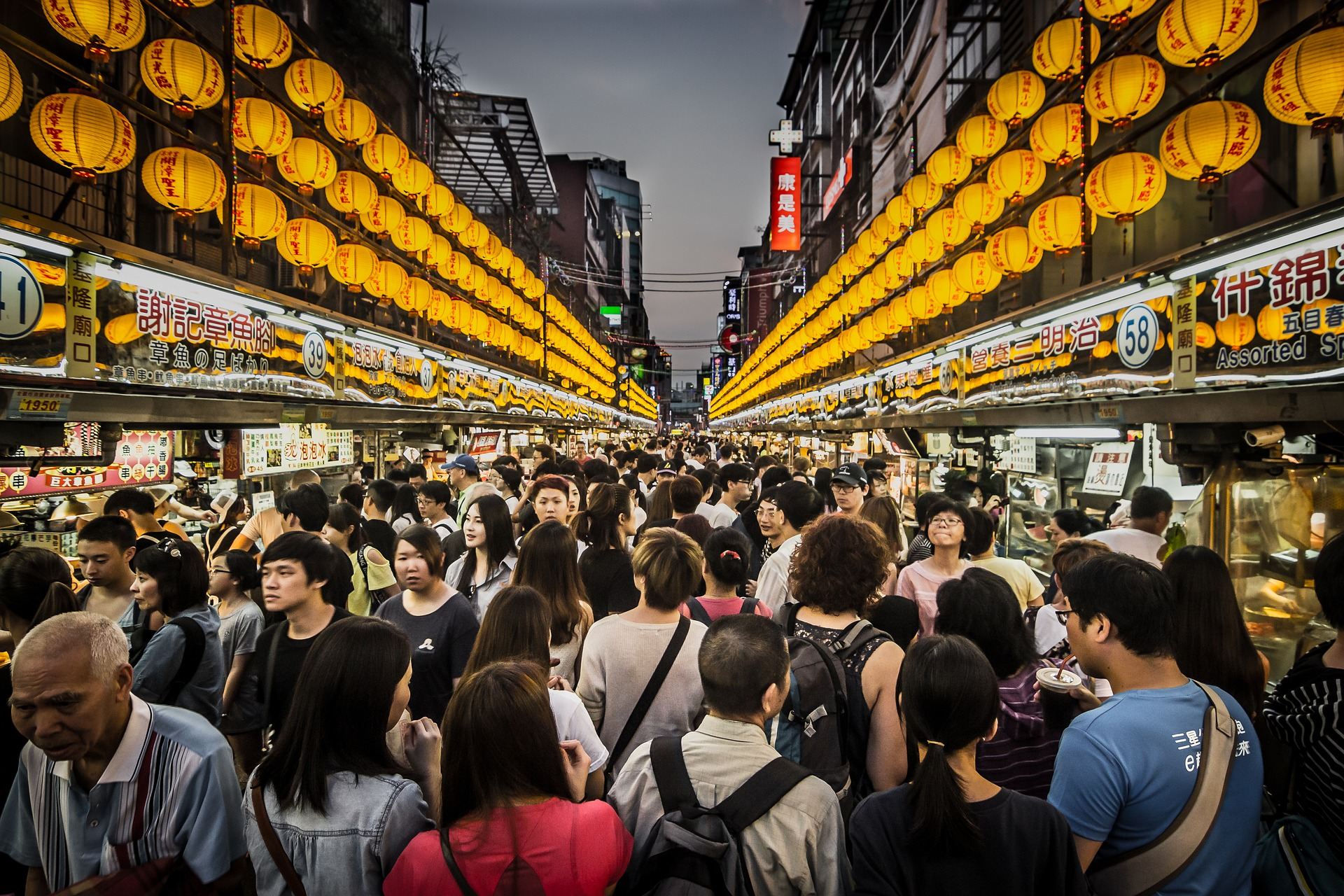The sheer number of people living on our planet, and how that number keeps growing, is something many folks are talking about these days. It’s a big deal, really, for our shared home and everything that lives on it. When we talk about overpopulation, we're thinking about a situation where there are just too many people for the available resources to comfortably support. It’s a concern that touches on so many parts of life, from how we get our food to the space we have to move around in.
A lot of different ideas float around when people try to figure out what’s truly behind this rise in human numbers. Some point to one thing, while others point to something else entirely. It’s not quite as simple as picking just one reason, you know? There are many threads that come together to create this picture, and each one plays its own part in bringing about the current state of affairs. So, it's almost like trying to untangle a very large knot, with each strand representing a different influence.
This article aims to get a closer look at the actual things that are making this happen, those forces that act as the initiators or catalysts for the increase in human inhabitants. We'll explore the various factors that, in their own ways, produce the effect of a growing population. It’s about understanding the different actions and situations that collectively bring about this significant global trend, helping us to see the bigger picture of what is causing overpopulation.
- Film Quotes About Life
- What To Say To Person Going Into Surgery
- Brush Back Haircut
- Curiosity Quotations
- Who Is Cheryl Scott Dating
Table of Contents
- What Factors Are Really Behind What is Causing Overpopulation?
- How Does Better Health Care Contribute to What is Causing Overpopulation?
- Is a Decline in Mortality Rates a Key Part of What is Causing Overpopulation?
- What Role Does Cultural Change Play in What is Causing Overpopulation?
- How Do Economic Shifts Influence What is Causing Overpopulation?
- Are Urbanization Trends a Factor in What is Causing Overpopulation?
- What About Resource Availability and What is Causing Overpopulation?
- Can Education and Empowerment Help with What is Causing Overpopulation?
What Factors Are Really Behind What is Causing Overpopulation?
When we talk about what is causing overpopulation, it's not a single, clear-cut thing that just makes it all happen. Rather, it's a collection of different elements, each playing a role in bringing about this significant change in our world. Think of it like a series of small pushes that collectively produce a very big effect. These elements can be quite varied, from how long people live to the choices families make about having children. Each one acts as a kind of initiator, setting off a chain of events that leads to more people on the planet. For instance, a simple improvement in how we handle clean water can, over time, lead to more people surviving and, thus, a larger overall population. It's a process where various actions or situations work together to create a specific outcome, making the human population grow. So, in some respects, it's a mix of good intentions and unintended results.
How Does Better Health Care Contribute to What is Causing Overpopulation?
One of the big pieces in the puzzle of what is causing overpopulation is the way health care has gotten so much better. Think about it: when people have easier access to doctors, medicines, and clean hospitals, they tend to live longer. This means fewer people are passing away from illnesses that used to be quite common, especially among children. So, too, a child born today has a much better chance of reaching adulthood than a child born a hundred years ago. This improvement in keeping people alive and well acts as a direct force, making the population grow because fewer lives are cut short. It’s a wonderful thing, of course, that more people are healthy and living full lives, but it also means that the number of people living at any given time naturally increases, becoming a significant part of the overall picture of population growth.
Is a Decline in Mortality Rates a Key Part of What is Causing Overpopulation?
A big reason for the rise in human numbers, a really key part of what is causing overpopulation, is the steady drop in how many people die each year. This isn't just about doctors and hospitals, though they certainly help. It's also about things like having cleaner water to drink, better ways to get rid of waste, and more food available for everyone. When these basic needs are met, people are less likely to get sick and pass away young. This means that more babies born today will grow up, have their own families, and live to old age. This long-term trend, where fewer people are dying at all ages, consistently brings about a larger population base. It’s like a continuous stream of new lives entering the world, with fewer leaving it early, which pretty much guarantees an increase in overall numbers. This shift is a powerful initiator of population change, and it has been going on for quite some time now, really changing the way our numbers look.
- Mexico Actor
- Height Tom Jones
- Samantha Judge Height
- Baby French Girl Names Meaning Blue
- Greatest Centers Of All Time
What Role Does Cultural Change Play in What is Causing Overpopulation?
Beyond health improvements, shifts in how societies think and act also play a big role in what is causing overpopulation. For a long time, in many parts of the world, families often had many children. This was for various reasons: perhaps to help with farm work, or because many children didn't survive to adulthood, so having more meant a better chance of some living on. However, as societies change, so do these family traditions. When people move from rural areas to cities, for example, or when women have more chances to get an education and work outside the home, the idea of a "large family" can start to shift. These cultural changes don't directly "make" more people, but they certainly act as a catalyst, influencing the choices individuals make about how many children they will have. This, in turn, impacts the overall population numbers, becoming a subtle but significant force in bringing about current demographic patterns.
How Do Economic Shifts Influence What is Causing Overpopulation?
Economic situations have a really strong influence on what is causing overpopulation, especially in different parts of the world. In places where people face a lot of poverty, or where there aren't many chances for education, families often tend to be larger. This might be because children are seen as a form of security for older age, or perhaps there's a lack of awareness about family planning methods. When people struggle to get by, and resources are scarce, the idea of having more hands to help out can seem like a good one, even if it adds to the overall population challenge. So, it's almost as if economic hardship can, in a way, trigger higher birth rates. These financial circumstances act as a kind of initiator, influencing family decisions that then contribute to the broader picture of population growth. It's a complex connection, but a very real one, that shapes how human numbers change over time.
Are Urbanization Trends a Factor in What is Causing Overpopulation?
The way people are moving from quiet country areas into busy cities is another element that contributes to what is causing overpopulation, particularly in terms of how we experience it. While urbanization doesn't necessarily mean more people are being born globally, it certainly changes where those people live and how crowded things feel. When lots of folks gather in one place, it puts a lot of pressure on local resources like water, housing, and transportation. This movement, this gathering in urban centers, acts as a force that brings about a feeling of overpopulation, even if the overall global birth rate hasn't dramatically changed. It creates pockets of very high density, which can feel quite overwhelming. So, in a sense, the shift towards city living is producing an effect that makes the issue of too many people feel much more immediate and pressing in certain areas, changing the very face of human settlement.
What About Resource Availability and What is Causing Overpopulation?
The amount of resources we have, things like food, clean water, and energy, is closely tied to the conversation about what is causing overpopulation. For a long time, improvements in how we grow food or get water have allowed us to support more people than ever before. Think about how much food we can produce now compared to a few centuries ago; it’s really quite a lot more. This ability to feed and care for a larger number of people has, in its own way, been a factor in making the population grow. It's like a feedback loop: more resources mean more people can survive, and more people then need even more resources. This dynamic, where the availability of life's necessities produces the effect of a larger population, is a central part of the story. However, it also highlights the challenge: how much can our planet truly provide before we reach a point where the resources just aren't enough for everyone, creating a situation of strain?
Can Education and Empowerment Help with What is Causing Overpopulation?
Interestingly, one of the most promising ways to influence what is causing overpopulation might be through education and giving people, especially women, more choices and power over their lives. When girls and women have the chance to go to school and pursue careers, they often choose to have smaller families, and they tend to have their children later in life. This isn't about telling people what to do; it's about providing opportunities and information that allow them to make informed decisions about their own futures and their families. This kind of empowerment acts as a gentle but powerful initiator of change, bringing about a different pattern in birth rates. It's a way of influencing the situation not through strict rules, but by fostering individual growth and freedom, which in turn helps to balance population numbers in a very human-centered way. Basically, it shows how societal progress can naturally affect demographic trends.



Detail Author:
- Name : Thelma Morar
- Username : turner.janice
- Email : emely.stiedemann@hotmail.com
- Birthdate : 2002-06-13
- Address : 69362 Kris Circle Port Pabloberg, RI 78937-6947
- Phone : +1 (540) 842-9111
- Company : Bashirian PLC
- Job : Steel Worker
- Bio : Et necessitatibus incidunt quibusdam eveniet nemo. Nostrum magnam quis voluptatum fuga nesciunt rem necessitatibus. Porro assumenda quod voluptatibus minima.
Socials
twitter:
- url : https://twitter.com/danny_real
- username : danny_real
- bio : Eos totam debitis sint repellat ut. Adipisci nisi sint eaque nobis. Cum commodi ducimus ipsum est.
- followers : 1692
- following : 179
tiktok:
- url : https://tiktok.com/@danny.o'kon
- username : danny.o'kon
- bio : Unde eveniet sed eaque. Sint recusandae nisi eos.
- followers : 5770
- following : 1563
instagram:
- url : https://instagram.com/danny2825
- username : danny2825
- bio : In porro et maxime qui. A vel eos sit neque.
- followers : 381
- following : 910
facebook:
- url : https://facebook.com/danny_dev
- username : danny_dev
- bio : Eius quibusdam sit dignissimos laudantium aut accusamus.
- followers : 5052
- following : 1190
linkedin:
- url : https://linkedin.com/in/danny_id
- username : danny_id
- bio : Quia esse quia porro enim.
- followers : 5514
- following : 1772
